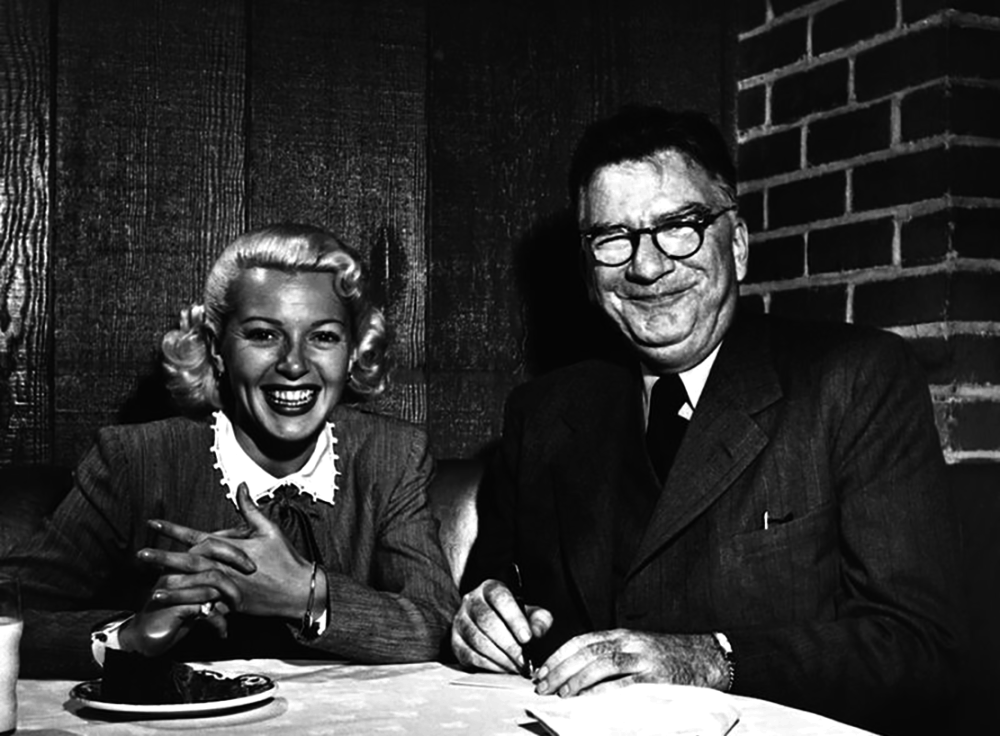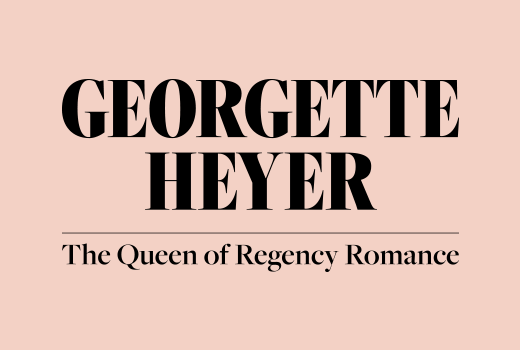25 of the Greatest Lines Ever Written by a Crime Fiction Master
What can you say about James M. Cain and his work that the man wouldn’t have said better himself? He was a born storyteller, possessed of a keen nose for suspense and a preternatural gift for the rhythms of language as it was spoken in pool halls, lonesome diners, and in the terrible privacy of the family home.
Cain was born in Annapolis, Maryland on July 1, 1892, and kept mostly to the east coast in the early parts of his life and career, working as a journalist and editor at daily newspapers, plying the trade, crafting editorials, and even putting in a brief stint as the managing editor of that east coast literary bastion, The New Yorker. But it wasn’t until he went west that he really found his voice.
In 1931, he moved to California intending to make a living as a screenwriter. The style didn’t suit him, though the atmosphere did—the sun-baked streets and dark lounges, a town dripping with aspirations and dreams though nearly everyone there was destined for disappointment. Cain said of the inspirational move: “When I got out to California, I found the people there spoke my lingo. They use a little better grammar in California than they do in Maryland, but what was even better for me was the roughneck who uses fairly good grammar. I found by putting the story in his mouth it wasn’t so knobby and gnarled for the reader. It would kind of go along … easy reading. So, suddenly, out there in California I began writing in the local idiom. Everything broke for me.”
In 1934, at the age of forty-two, Cain published his first novel, The Postman Always Rings Twice. It remains to this day one of the classics of 20th century American literature, and one of the very best exemplars of the power and the potential of crime writing, though Cain would always insist that he didn’t think of his books as crime novels or noirs, but rather as love stories. That’s the power of his work, after all. Sure, his characters sin, abuse, rob, and kill, but there’s never any doubt that somewhere in their twisted hearts is a misguided love. Cain’s slightly skewed world vision provided many such gems of insight over the years. Here are 25 of his greatest quotes: on life, death, writing, dreams, disappointment, and of course his own favorite subject, love.
Writing Novels
“If your writing doesn’t keep you up at night, it won’t keep anyone else up either.”
“Writing a novel is like working on foreign policy. There are problems to be solved. It’s not all inspirational.”
― The Paris Review, The Art of Fiction No. 69
“…if he can write a book at all, a writer cannot do it by peeping over his shoulder at somebody else, any more than a woman can have a baby by watching some other woman have one. It is a genital process, and all of its stages are intra-abdominal;”
― The Butterfly
“A lot of novelists start late—Conrad, Pirandello, even Mark Twain. When you’re young, chess is all right, and music and poetry. But novel-writing is something else. It has to be learned, but it can’t be taught. This bunkum and stinkum of college creative writing courses! The academics don’t know that the only thing you can do for someone who wants to write is to buy him a typewriter.”
― The Paris Review, The Art of Fiction No. 69
“You usually can tell when a writer is going down hill by the size of his liquor bill.”
“You have to wait for your mind to catch up with whatever it is it’s working on; then you can write a novel.”
― The Paris Review, The Art of Fiction No. 69

Finding Your Voice
“I make no conscious effort to be tough, or hard-boiled, or grim, or any of the things I am usually called. I merely try to write as the character would write, and I never forget that the average man, from the fields, the streets, the bars, the offices and even the gutters of his country, has acquired a vividness of speech that goes beyond anything I could invent, and that if I stick to this heritage, this logos of the American countryside, I shall attain a maximum of effectiveness with very little effort.”
― The Paris Review, The Art of Fiction No. 69
The Nature of Love
“That’s all it takes, one drop of fear, to curdle love into hate.”
― Double Indemnity
“I loved her like a rabbit loves a rattlesnake”
― Double Indemnity
“I take no interest in violence. There’s more violence in Macbeth and Hamlet than in my books. I don’t write whodunits. You can’t end a story with the cops getting the killer. I don’t think the law is a very interesting nemesis. I write love stories.”
― The Paris Review, The Art of Fiction No. 69
“I kissed her. Her eyes were shining up at me like two blue stars. It was like being in church.”
― The Postman Always Rings Twice
Dreams Come True
“And then at last I began to realize how terrible a thing it was, the dream that you make come true.”
― The Cocktail Waitress
“[O]n a plane I like to be left to myself, as the clouds and the sky and drone of the motor all make me feel dreamy, and dreams are a solo enterprise.”
― The Cocktail Waitress
“Tomorrow night, if I come back, there’ll be kisses. Lovely ones, Frank. Not drunken kisses. Kisses with dreams in them. Kisses that come from life, not death.”
― The Postman Always Rings Twice
What Money Will Buy You
“The hand that holds the money cracks the whip.”
― Mildred Pierce
“With this money I can get away from you. From you and your chickens and your pies and your kitchens and everything that smells of grease. I can get away from this shack with its cheap furniture, and this town and its dollar days, and its women that wear uniforms and its men that wear overalls. You think just because you’ve made a little money you can get a new hairdo and some expensive clothes and turn yourself into a lady. But you can’t, because you’ll never be anything but a common frump, whose father lived over a grocery store and whose mother took in washing. With this money, I can get away from every rotten, stinking thing that makes me think of this place or you!”
― Mildred Pierce
The Old Family Hearth
“Don’t wash family linen in public, or with anyone except family.”
― The Cocktail Waitress
“Mildred sat quite still, and when she heard Veda drive off she was consumed by a fury so cold that it almost seemed as though she felt nothing at all. It didn’t occur to her that she was acting less like a mother than like a lover who had unexpectedly discovered an act of faithlessness, and avenged it.”
― Mildred Pierce
“She preferred to remain at a distance, to enjoy this child as she seemed, rather than as she was.”
― Mildred Pierce
Lessons in Ethics
“Stealing a man’s wife, that’s nothing, but stealing his car, that’s larceny.”
― The Postman Always Rings Twice
“If you have to do it, you can do it.”
― Mildred Pierce
The Importance of Knowing Yourself
“Yes, I have actually mined coal, and distilled liquor, as well as seen a girl in a pink dress, and seen her take it off. I am 54 years old, weigh 220 pounds, and look like the chief dispatcher of a long-distance driving concern. I am a registered Democrat. I drink.”
― The Butterfly
“As I say, they don’t teach it at the academy, but you learn it on the job: not every man’s death is a crime.”
― The Cocktail Waitress
“We’re just two punks, Frank. God kissed us on the brow that night. He gave us all that two people can ever have and we just weren’t the kind that could have it. [I]t’s a big airplane engine, that takes you through the sky, right up to the top of the mountain. But when you put it in a Ford, it just shakes it to pieces. That’s what we are, Frank, a couple of Fords.”
― The Postman Always Rings Twice
Critics
“Time is the only critic. If your algebra is right, if the progression is logical, but still surprising, it keeps.”
― The Paris Review, The Art of Fiction No. 69
Original article by Dwyer Murphy in CrimeReads.com.



